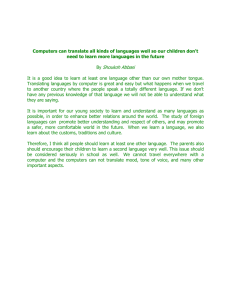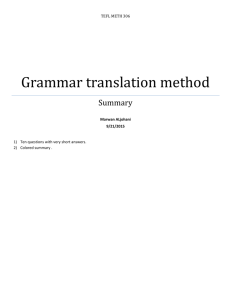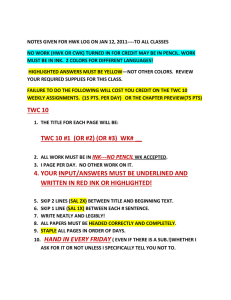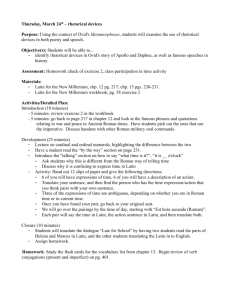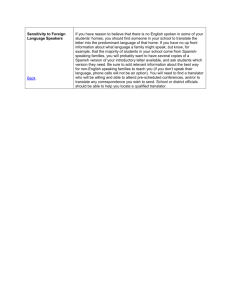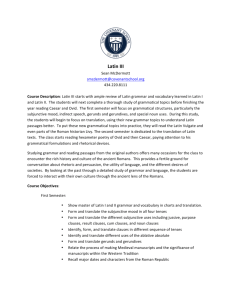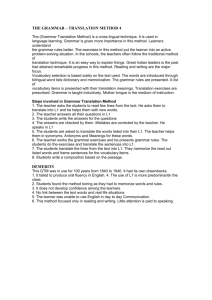Study Guide for UNIT 4
advertisement
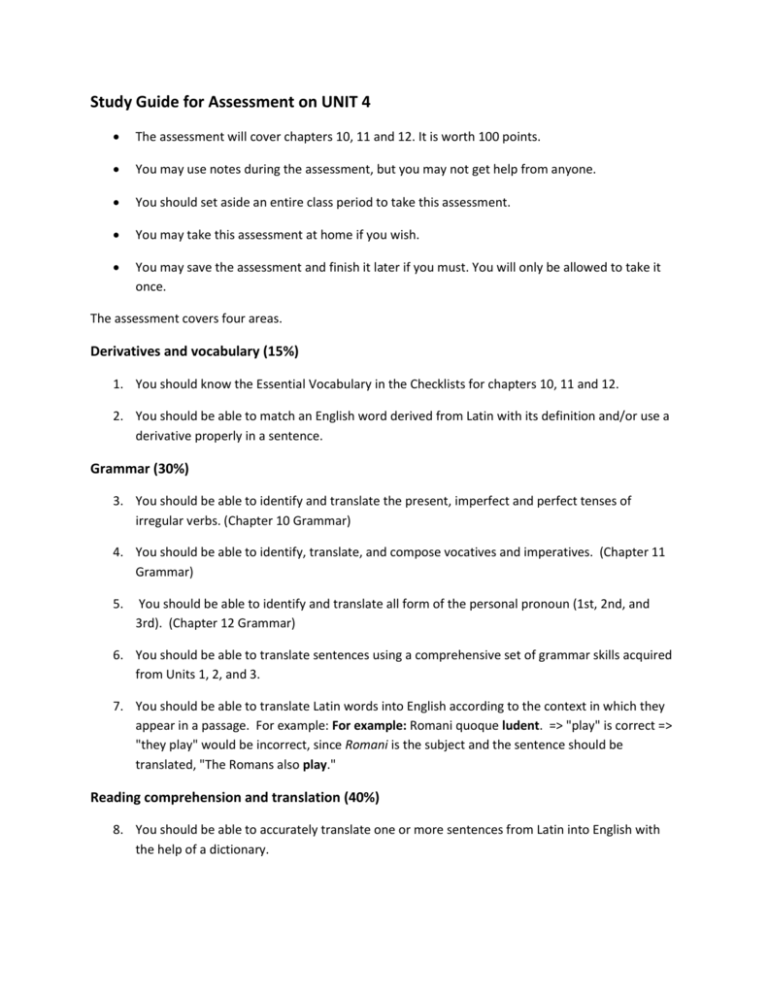
Study Guide for Assessment on UNIT 4 The assessment will cover chapters 10, 11 and 12. It is worth 100 points. You may use notes during the assessment, but you may not get help from anyone. You should set aside an entire class period to take this assessment. You may take this assessment at home if you wish. You may save the assessment and finish it later if you must. You will only be allowed to take it once. The assessment covers four areas. Derivatives and vocabulary (15%) 1. You should know the Essential Vocabulary in the Checklists for chapters 10, 11 and 12. 2. You should be able to match an English word derived from Latin with its definition and/or use a derivative properly in a sentence. Grammar (30%) 3. You should be able to identify and translate the present, imperfect and perfect tenses of irregular verbs. (Chapter 10 Grammar) 4. You should be able to identify, translate, and compose vocatives and imperatives. (Chapter 11 Grammar) 5. You should be able to identify and translate all form of the personal pronoun (1st, 2nd, and 3rd). (Chapter 12 Grammar) 6. You should be able to translate sentences using a comprehensive set of grammar skills acquired from Units 1, 2, and 3. 7. You should be able to translate Latin words into English according to the context in which they appear in a passage. For example: For example: Romani quoque ludent. => "play" is correct => "they play" would be incorrect, since Romani is the subject and the sentence should be translated, "The Romans also play." Reading comprehension and translation (40%) 8. You should be able to accurately translate one or more sentences from Latin into English with the help of a dictionary. 9. You should be familiar enough with the characters and plot in the narrative and didactic stories in Unit 4 that you can answer basic factual questions about those stories. Review your translations of all the stories (narrative and didactic) in Unit 4. Culture (15%) 10. You should be able to answer basic factual questions about the topics covered in Unit 4 based on the readings in English and the Latin passages in each chapter. The topics include the Roman entertainment, Roman architecture, and Roman art.
